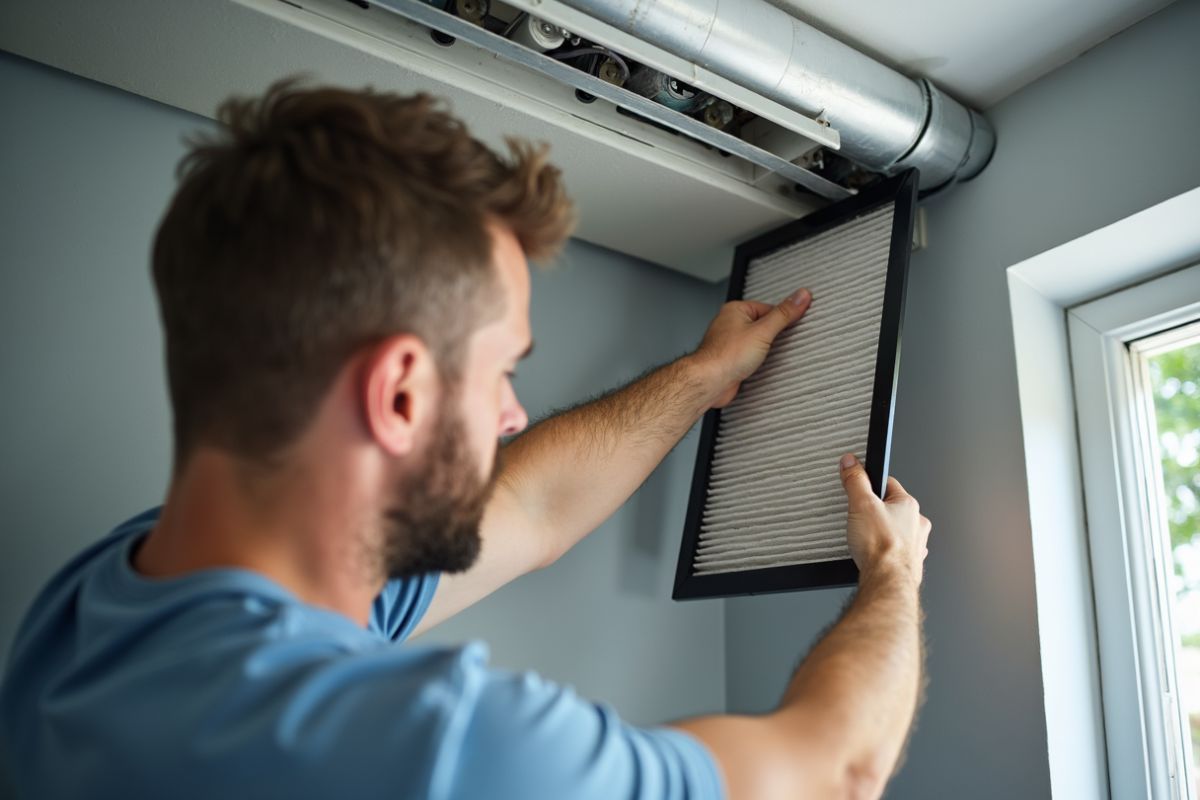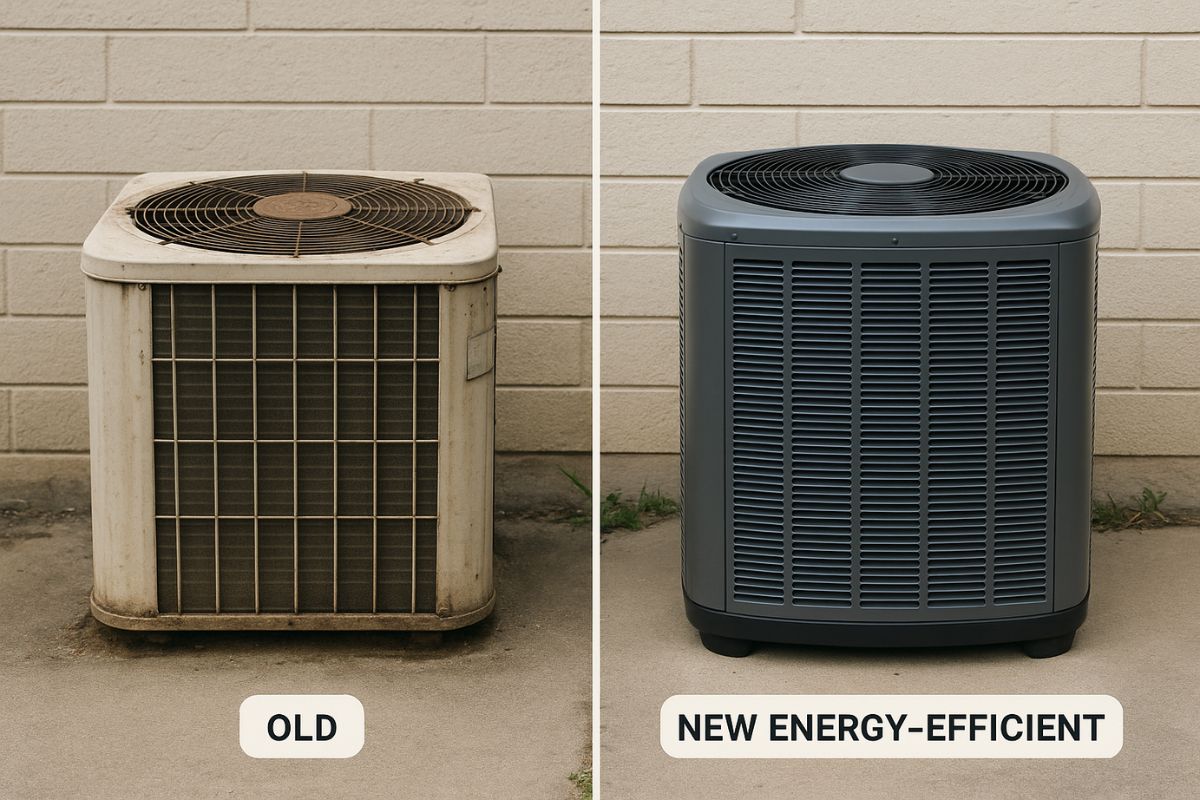Energy efficiency is at the forefront of discussions surrounding heating and cooling in Australia. As energy bills continue to rise, Australian households and businesses are looking for ways to reduce energy consumption while maintaining comfort. With new energy efficiency standards and improved air conditioning technology, the future of air conditioning in Australia is shifting towards sustainable and cost-effective solutions.
Why Energy Efficiency Matters for Air Conditioning

Air conditioning is a necessity in many Australian homes and businesses, especially in regions with extreme temperatures. However, traditional air conditioners can contribute significantly to household energy use and emissions. Investing in energy-efficient air conditioning systems can lead to substantial energy savings, lower energy bills, and a reduced environmental footprint.
The Shift Towards Natural Refrigerants in the Australian Market
As part of global efforts to reduce greenhouse gas emissions, the refrigeration industry is moving towards natural refrigerants such as CO2 (R-744), hydrocarbons (R-290, R-600a), and ammonia (R-717). These alternatives offer high energy efficiency while minimising environmental impact. AP Refrigeration stays ahead of these trends by offering expert services for installing and maintaining refrigeration systems that use natural refrigerants, ensuring businesses and homeowners comply with modern efficiency standards.
Features of Energy-Efficient Air Conditioners
Modern air conditioning units come with advanced features that enhance efficiency and performance. Some key elements include:
- Reverse Cycle Technology – This allows the unit to function as both a heater and a cooler, making it a versatile solution for year-round comfort.
- Smart Thermostats – These enable precise temperature control, optimising energy use based on indoor air conditions.
- Heat Pump Technology – Heat pumps transfer heat rather than generating it, improving energy efficiency and reducing emissions.
- Variable Speed Compressors – These adjust the cooling or heating output based on demand, reducing unnecessary energy use.
How Energy-Efficient Air Conditioning Lowers Energy Bills
By choosing an energy-efficient air conditioner, Australian households and businesses can lower their energy costs. New air conditioners designed to meet minimum energy performance standards (MEPS) use advanced technology to optimise cooling and heating, resulting in lower power consumption. Smart thermostats and programmable settings also help users manage their energy use more effectively, further reducing electricity costs.
Government Regulations and Energy Efficiency Standards
The Australian government has introduced regulations to improve the energy performance of air conditioning systems. The Equipment Energy Efficiency (E3) programme sets efficiency standards that all air conditioners in Australia must meet. These regulations ensure that only energy-saving appliances are available on the market, helping consumers make better choices.
Understanding Energy Rating Labels
Energy rating labels play a crucial role in helping consumers select efficient air conditioning units. The Zoned Energy Rating Label (ZERL) provides detailed information on how an air conditioner performs in different climate zones across Australia. The higher the star rating, the more efficient the appliance, leading to greater energy savings.
Choosing the Right Air Conditioner for Your Home or Business

Selecting the right air conditioning system depends on various factors, including the size of the space, climate zone, and budget. Popular options include:
- Split-System Air Conditioners – Ideal for single rooms or smaller areas, offering efficient cooling and heating.
- Ducted Systems – Suitable for larger spaces or whole-home climate control.
- Window Air Conditioners – A cost-effective solution for cooling individual rooms.
The Role of Smart Technology in Energy Efficiency
Smart HVAC systems provide additional ways to improve efficiency. Many modern units can be controlled remotely via smartphone apps, allowing users to adjust settings and monitor energy consumption. These smart features help reduce wasteful energy use and ensure that air conditioners only run when necessary.
Maintenance and Energy Efficiency
Proper maintenance is essential for ensuring a cooling system remains energy efficient. Some key maintenance tips include:
- Regularly cleaning or replacing air filters.
- Checking for leaks and ensuring proper insulation.
- Scheduling professional servicing to maintain optimal performance.

AP Refrigeration offers expert maintenance services to keep your cooling system unit running efficiently, helping you save on energy bills while maintaining indoor comfort.
The Future of Air Conditioning in Australia
With increasing awareness of energy efficiency, the future of air conditioning in Australia is moving towards smarter, more sustainable solutions. Advancements in heat pump technology, smart climate control, and renewable energy integration are paving the way for highly efficient heating and cooling systems.
AP Refrigeration: Your Partner in Energy-Efficient Cooling
At AP Refrigeration, we are committed to providing energy-efficient air conditioning solutions tailored to Australian homes and businesses. Our expert services include installation, maintenance, and repair of high-efficiency cooling systems that meet the latest energy efficiency standards.
By choosing AP Refrigeration, you can enjoy reliable service, reduced energy bills, and environmentally friendly cooling and heating solutions. Contact us today to learn more about how we can help improve the energy efficiency of your home or business.
Investing in an energy-saving cooling system is essential for reducing energy costs and minimising environmental impact. With ongoing advancements and government regulations, Australian households and businesses have more options than ever to adopt sustainable heating and cooling solutions. AP Refrigeration is here to support you in making the best choice for your needs, ensuring comfort and efficiency for years to come.










